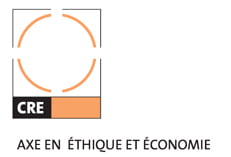
Debating a Post-Work Future
Work is widely perceived as being ‘in crisis’. The crisis in question is quantitative, with some working too much and others lacking access to sufficient work; qualitative, with work increasingly seen as meaningless, alienating, or exhausting; and economic, with work increasingly precarious, insecure, and undercompensated. The provocative label ‘post-work’ has been applied to a body of scholarship and an activist agenda that responds to this crisis by envisioning a world ‘after’ work. Unsurprisingly, disagreement has arisen as to the exact contours of the post-work critique and agenda (Hester and Stronge 2020, Dinerstein and Pitts 2021).
What does ‘post-work society’ mean, and on what grounds, if any, is it desirable? What are the theoretical foundations of the post-work ideal? What are its challenges and problems? For an edited volume, we are looking for abstracts that focus primarily on these questions:
- What is meant by ‘work’ in ‘post-work’ arguments? How does ‘work’ relate to notions such as labour, jobs, employment?
- Is the post-work movement anti-work? Anti-employment?
- Are there competing understandings or ideals of a post-work society, and how do they differ?
- Does post-work aim to eliminate work, or instead to recover or liberate the value of work from the present labour status quo?
- How does the post-work movement relate to calls for increased opportunities for leisure or free time?
- What are the central moral notions driving the anti-work critique (freedom, justice, solidarity, alienation, etc.)?
- Is the charge that ‘post-work’ is utopian a fair charge?
- What is the relation between ‘post-work’ and technological change?
- What role does the feminist critique of reproductive labor play in shaping the post-work ideal?
- How are ethics and social justice framed and articulated in the post-work view?
- What is the relation between post-work and other philosophies of work?
- What role, if any, do environmental concerns play in working time reduction goals?
- How does the increasingly blurred line between the time of work and free time, mediated by new technologies, affect the post-work ideal?
- In what ways do the ideals of a “post-work” society address long-standing inequities concerning sex, gender, race, disability, and immigration status?
- What will be the role of labor markets in a “post-work” society? Are there alternatives to markets for allocating and compensating labor as productive contribution?
- Does “post-work” mean post-capitalist? Are there alternative economic models that realize or reflect the ideals of a “post-work” social order?
The book Debating a Post-Work Future aims at providing a comprehensive, critical overview of the nature and desirability of a post-work future. Authors are invited to submit abstracts proposals that address these questions, or focus on different themes and approaches to a “post-work” critique and agenda. Abstracts should be 750 words, and submitted to the email address postworkproject@gmail.com by June 1, 2021.
The editors
Denise Celentano (Research Centre on Ethics, University of Montreal), Michael Cholbi (University of Edinburgh), Jean-Philippe Deranty (Macquarie University), Kory Schaff (California State University)



